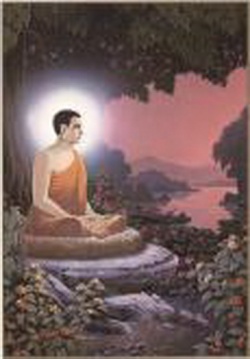What is the Pure Land?
It depends on the school and/or the tradition a Buddhist chooses to follow. Just so you are aware, Pureland is really only a "school" in Japan. Everywhere else in Mahayana, a kind of Pureland practice is usually taken for granted, or at least not treated as its own separate practice, like in Chinese Ch'an, for instance.
The majority of the Buddhists who aspire to be reborn in any Pureland (there is more than one) usually believe it to be a literal place you go after you die if you aspire to be reborn there. Others use thoughts of Pureland as grounds for meditation and/or prayer. Others take it upon themselves in their Bodhisattva practice to make this realm a pureland. None of these are mutually exclusive either--all three practices can be undertaken by any given person.
In the White Lotus Sutra many, many Buddhas, Arhants, Bodhisattva's are introduced. Each Buddha or Buddha to be has their own pure land which is described in very evocative language. For instance Shariputra, one of the Buddha's main disciples in the Pali Canon, is predicted to become the Buddha 'Buddha Flower Grow' in future lives. This Buddha will have a pure land called 'Free from Stain'. The land will be
,,,,, level and smooth, pure and beautifully adorned, peaceful, bountiful and happy. Heavenly human beings will flourish there. [...] Beside each road will grow rows of seven jewelled trees which will constantly flower and bear fruit.
Quote taken from the Burton Watson translation (pp 52 )
In this text every Buddha has a pure land and every pure land is mind bendingly amazing. The sutra as a whole does a good job of bending the mind.
Perhaps in a less mythic sense, I have heard the pure land as pointing to a sense of letting go. Maybe a quality of surrender or other power. They can be understood in a variety of different ways.
There are so many confusion regarding Pure Land Buddhism that I feel I must chip in. Many people even see it as non Buddhist because it seems to be about the Amitabha Buddha saving humans through the power of his grace.
I am from a non denominational Chinese Mahayana organization with Chan lineage but we also heavily devote to Amitabha and emphasize the Amitabha Sutra in our practice.
After more than a year of chanting the sutra, my conclusion is that it is a metaphor for the Dharma! Remember that Pure Land Buddhism is an outgrowth of Mahayana Buddhism and therefore one of the highest goals is the Perfection of Skillful Means (Upaya Paramita). Mahayana texts utilize fantastical imageries and stories to bring across the difficult to understand technical concepts and teachings in early Buddhism, preserved in the Pali Canon and the Sanskrit Agama.
Imagine your average person being told about the Four Noble Truths, Suffering, Cause of suffering, End of Suffering and the Noble Eightfold Path. It doesn't interest him - "Give up my desires? That's ridiculous! And end of suffering doesn't sound exciting at all! Impermanence sounds so depressing!"
So this is where Pure Land Buddhism comes in. "What if we tell you that there is a place called the World of Supreme Bliss better than any worldly pleasures? And to reach there you need chant this sutra everyday, and I promise you Amitabha Buddha will appear before you". If you didn't realize, chanting is actually a very powerful form of meditation, in fact for the novice, it is faster and more effective than sitting meditation and trying to watch your breath. Here your attention and focus is on the sutra, attaining Right Effort, Right Mindfulness and Right Concentration. With that it is possible to experiences the mental factors of the Jhana, joy, happiness, peace, and realizations.
Further more the description of the Pure Land has peppered references throughout to the numbers four, seven and eight. Referring to the Four Noble Truths, Seven Factor of Enlightenment, Noble Eightfold Path.
There are many other messages within. For example, the name of Amitabha himself is Infinite Life and Infinite Light, referring to the Deathless Truth and Wisdom of the Dharma, reminding people that ultimately the goal of Buddhism is Eternal Life, and that the buddhas are ultimately immortal.
Further more it is stated in sutra that in the Pure Land of Amitabha, even lower realms (hell, hungry ghost, and animals) do not exist, this is a Mahayana message that ultimately the goal is not only to save yourself, but purify the whole world. Pure Land Buddhists vow to turn this very world into a paradise. And have a Pure Land in their hearts wherever they maybe.
At the end of the Amitabha sutra, the theme of perfection of skillful means repeats, It said that to attain enlightenment is difficult, but what is even more difficult is to teach it.
There are many other messages which I am slowly absorbing as I encounter them, but I hope this clarify the intentions of Pure Land Buddhism.
Source
https://buddhism.stackexchange.com/questions/1389/what-is-the-pure-land?rq=1
